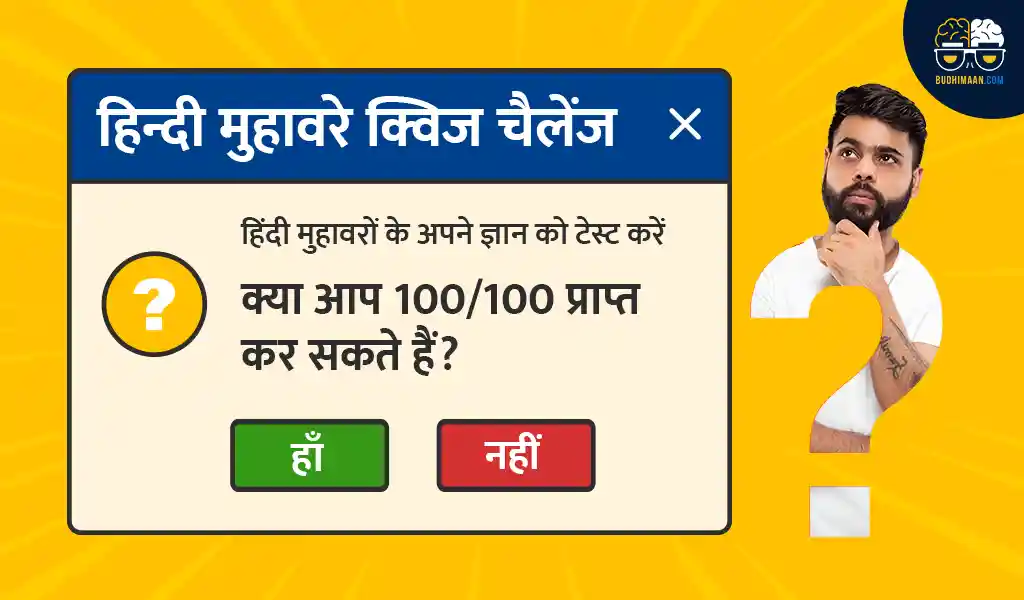अर्थ: “पासा पलटना” एक लोकप्रिय हिंदी मुहावरा है, जिसका अर्थ होता है अचानक परिस्थितियों में बदलाव हो जाना या अचानक हालातों का उलट जाना। पासा एक प्रकार की पासी होती है जिसे पूराणी जमाने में खेल में प्रयुक्त किया जाता था।
उदाहरण:
-> बड़े व्यापारिक सम्मेलन में अचानक मुख्य निवेशक ने अपना समर्थन वापस ले लिया, जिससे सभी को लगा कि ‘पासा पलट गया’।
-> सभी समझते थे कि राजनेता अगले चुनाव में आसानी से जीत जाएंगे, लेकिन वोटों की गिनती में जब उनका प्रतिद्वंद्वी आगे निकला, तो सभी के लिए ‘पासा पलट गया’।
वाक्य में प्रयोग: अर्जुन ने अपने स्टार्टअप के लिए बड़े निवेशक से मुलाकात की थी, प्रतीत होता था कि सब कुछ अच्छा जा रहा है, लेकिन जब निवेशक ने अचानक निवेश से इनकार कर दिया, तो अर्जुन के लिए ‘पासा पलट गया’।
विचार: जीवन में अनपेक्षित घटनाएँ होती रहती हैं जिससे हालात अचानक बदल सकते हैं। “पासा पलटना” मुहावरा हमें यह समझाता है कि हमें अपनी तैयारियों और समझदारी से उन अनपेक्षित परिस्थितियों का सामना करना होता है।

पासा पलटना मुहावरा पर कहानी:
रमन एक छोटे गाँव का व्यापारी था। उसका धंधा चावल बेचने का था, और वह अपने गाँव में सबसे बड़ा व्यापारी माना जाता था। सभी गाँव वाले उसे और उसके व्यापार को समझते थे और उस पर विश्वास करते थे।
लेकिन एक दिन, एक नए व्यापारी ने गाँव में कदम रखा और वह भी चावल बेचने लगा। इस नए व्यापारी ने चावल की कीमत में बड़ी कटौती की, जिससे गाँववाले उसकी ओर आकर्षित हुए। रमन को इस बारे में सूचना मिली, लेकिन वह उसे अनदेखा कर दिया, सोचता हुआ कि लोग फिर भी उसके पास ही चावल खरीदने आएंगे।
कुछ महीने बाद, जब रमन के व्यापार में घातक गिरावट हुई, तो उसे समझ में आया कि ‘पासा पलट चुका’ है। अब वह अधिकांश ग्राहकों को खो चुका था और उसका व्यापार संकट में पड़ गया था।
यह घटना रमन को यह सिखाई कि किसी भी स्थिति को हल्के में लेने से ‘पासा पलट सकता है’। और वह फिर से अपने व्यापार को उचित दिशा में लाने के लिए मेहनत करने लगा।
आशा है कि आपको इस मुहावरे की समझ आ गई होगी और आप इसका सही प्रयोग कर पाएंगे।
Hindi to English Translation of पासा पलटना – Pasa palatna Idiom:
Meaning: “Pasa palatna” is a popular Hindi idiom, which means a sudden change in circumstances or an unexpected reversal in situations. ‘Pasa’ is a kind of dice that was used in games in ancient times.
Usage:
-> In a major business conference, the primary investor suddenly withdrew his support, making everyone feel that the ‘dice had turned’.
-> Everyone thought the politician would easily win the next election, but when his opponent led in the vote count, it felt like the ‘dice had turned’ for everyone.
Usage in a sentence: Arjun had a meeting with a major investor for his startup. It seemed like everything was going well, but when the investor suddenly refused to invest, it felt like the ‘Pasa palat gya’ for Arjun.
Thought:
Life is full of unexpected events that can suddenly change circumstances. The idiom “Pasa palatna” teaches us that we have to face these unexpected situations with our preparations and wisdom.
Story of Pasa palatna in English:
Raman was a merchant from a small village. He traded in rice and was considered the most prominent trader in his village. All the villagers recognized and trusted him and his business.
However, one day, a new merchant set foot in the village and began selling rice as well. This new merchant offered rice at a significantly reduced price, attracting the villagers towards him. Raman heard about this but overlooked it, thinking that people would still come to him to buy rice.
A few months later, when Raman noticed a drastic decline in his business, he realized that the ‘dice had turned.’ He had now lost most of his customers, and his business was in jeopardy.This event taught Raman that taking any situation lightly can ‘turn the dice.’ And he began working hard again to steer his business back on track.
I hope this gives you a clear understanding of the proverb and how to use it correctly
FAQs:
“पासा पलटना” का उपयोग किस प्रकार की व्यक्तियों में किया जा सकता है?
इस अभिवादन का उपयोग व्यक्तिगत, पेशेवर और सामाजिक स्तर पर सभी प्रकार की व्यक्तियों में किया जा सकता है।
क्या “पासा पलटना” का उपयोग रोजमर्रा की बातचीत में किया जा सकता है?
हाँ, यह अभिवादन रोजमर्रा की बातचीत में भी किया जा सकता है जब कोई किसी मुद्दे पर अपनी दिशा बदलता है या कोई काम करने का फैसला बदल देता है।
क्या इस अभिवादन का कोई विशेष इतिहास है?
“पासा पलटना” का कोई विशेष इतिहास नहीं होता, यह एक सामान्य हिंदी मुहावरा है जो बदलते समय के साथ उपयोग में आया है।
क्या इस अभिवादन का उपयोग कविताओं में किया जाता है?
हाँ, “पासा पलटना” का उपयोग कविताओं और कवियों के द्वारा भी किया जाता है जब किसी चीज के स्वरूप में परिवर्तन का व्यक्ति स्वरूपण करता है।
क्या “पासा पलटना” का कोई संबंधित मुहावरा है?
हाँ, “पासा पलटना” के संबंध में एक और मुहावरा है – “पासा बदलना,” जिसका मतलब भी किसी कार्य में परिवर्तन करना होता है।
हिंदी मुहावरों की पूरी लिस्ट एक साथ देखने के लिए यहाँ क्लिक करें








